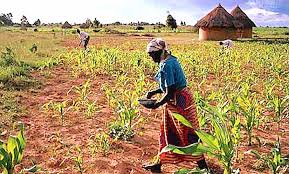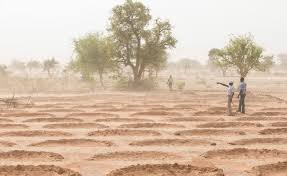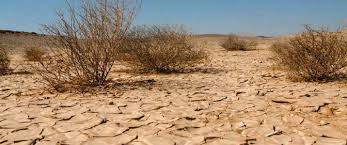
John Cassim
Zimbabwean farmers are being urged to take care of their land as the world acknowledges an increase in desertification. This call came from the Director General of the Environmental Management Agency (EMA) during the commemoration of Desertification and Drought Day, celebrated annually on June 17.
Zimbabwe, a nation whose fundamental identity is intrinsically linked to its land, sees dedication to land restoration as more than mere environmental compliance. It represents a foundational pillar of its national developmental aspirations.
“We acknowledge that land degradation and drought present substantial challenges to our agricultural output, water availability, and overarching socio-economic stability,” stated Aaron Chigona, Director General of the Environmental Management Agency (EMA). “These environmental pressures directly impact our capacity to achieve the sustainable development objectives articulated within Vision 2030, which envisages an empowered and prosperous upper-middle-income society. Healthy and productive land is an indispensable prerequisite for ensuring national food security, fostering employment generation, and cultivating resilient communities.”
Chigona added, “As we approach the midpoint of the UN Decade on Ecosystem Restoration (2021–2030), the urgency for decisive action is more pronounced than ever. It is incumbent upon us to translate our aspirations into concrete actions on the ground. Every Zimbabwean, encompassing individual agriculturalists, community leaders, corporate entities, and policymakers, holds a crucial responsibility in this collective endeavour. Let us collectively adopt sustainable land management practices, engage actively in restoration initiatives, and advocate for policies that prioritize the ecological integrity of our land.”
This year’s, Desertification and Drought Day, was commemorated under the theme: “Restore the land. Unlock the opportunities.” This observance served as a critical affirmation of humanity’s collective capacity to revitalize degraded terrestrial ecosystems, thereby transforming them into sources of abundant opportunity.
This was also articulated by UNCCD Executive Secretary Ibrahim Thiaw, “Land degradation and drought constitute significant barriers to economic prosperity, stability, food production, water security, and overall quality of life. Land restoration offers a pivotal opportunity to counteract these threats and engender new possibilities.”

For Zimbabwe, a nation whose fundamental identity is intrinsically linked to its land, this message holds profound resonance.
Zimbabwe’s Progress and Future Commitments
Zimbabwe has evidently advanced in harmonizing its national agenda with global commitments, particularly through the establishment of its Land Degradation Neutrality (LDN) Targets within the framework of the United Nations Convention to Combat Desertification (UNCCD).
Our LDN targets are ambitious yet attainable, signifying our resolute commitment to arresting and reversing land degradation, thereby ensuring that future generations inherit a fertile and productive national landscape.
These targets transcend mere numerical objectives; they embody Zimbabwe’s collective commitment to restoring wetlands, rejuvenating forest cover, safeguarding grasslands, and implementing sustainable land management practices across all economic sectors.
This commitment extends beyond the purview of UNCCD obligations, notably highlighted by Zimbabwe’s forthcoming role as host for COP15 of the Convention on Wetlands, scheduled from July 23 to 31.
This significant event will provide a crucial platform for Zimbabwe to reaffirm its steadfast dedication to the judicious utilization and conservation of wetland ecosystems.

Wetlands are crucial ecological systems that fulfil a vital role in mitigating the impacts of drought, facilitating groundwater recharge, supporting biodiversity, and providing essential ecosystem services.
Initiatives aimed at rehabilitating degraded wetlands and preserving extant ones are inherently interconnected with broader land restoration agenda, thereby underscoring the country’s comprehensive approach to environmental stewardship.
Agriculture significantly contributes to desertification through practices that degrade land and deplete its resources. These practices include deforestation for cropland, soil erosion, and the overuse of fertilizers and pesticides. Approximately 12 million hectares of productive land are lost annually due to desertification, impacting food security and livelihoods.
Agriculture, particularly unsustainable farming practices, is a significant contributor to desertification in Zimbabwe, with an estimated 30% of agricultural land under threat.
